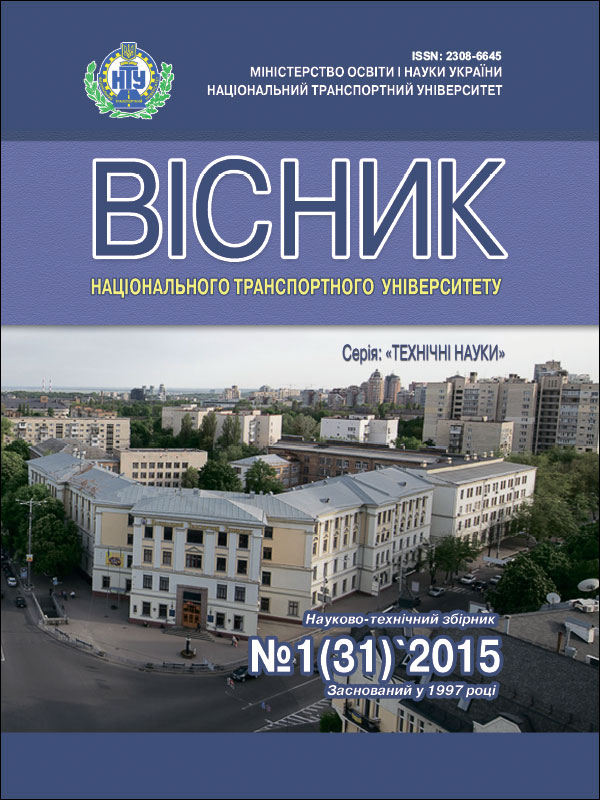THE POLYPROPYLENE BIPOLAR ELECTRODE FOR COBALT ELECTROEXTRACTION
ABSTRACT
Melnik N.I.. Vlasenko N.Ye., Kovalenko I.V.. Shpak A.Ye., Zul'figarov A.O. The polypropylene bipolar electrode for cobalt electroextraction. Visnyk National Transport University Series «Technical sciences». Scientific and Technical Collection. - Kyiv: National Transport University, 2020. - Issue 1 (46).
In the article the polypropylene bipolar electrode is offered for the cobalt extraction from low concentration solutions.
Research object: electrolyzer with polypropylene bipolar electrode.
Purpose of the study: research of cobalt electroextracton on the polypropylene bipolar electrode from low concentrated solutions.
Research methods: stationary and non-stationary voltamperometry. measuring method of micro hardness.
It was established that application of bipolar electrolyzer provides high purity electro-extraction of metal in the process of cobalt extraction. Using of polypropylene bipolar electrode provides lightness and plasticity that is not realized in the case of similar metallic. Received fallouts have a microhardness from 350 to 450 kg/мм2, depending on ions concentration of metal in electrolyte. Fallouts with maximal microhardness - homogeneous, fine crystalline with narrow distribution after the sizes of 5 - 8 mkm. The maximal values of extraction coefficient and current output from diluted solutions of their salts set 74 аЫ 76 % (respectively) at the rate of bipolar movement 1,5 спі/miin For an extraction 1 kg of cobalt it is necessary 20 kW4i, the process is effective and does not require high energy costs.
The results of the article can be implemented in technology of wastewater treatment from heavy metal ions at galvanic productions.
In the future it is planned to study the possibility of application polypropylene bipolar electrode for metal extraction.
KEY WORDS: POLYPROPYLENE BIPOLAR ELECTRODE, COBALT ELECTOEXTRACTION, LOW CONCENTRATION SOLUTIONS.
REFERENCES
- Kobya, M. Treatment of Cr, Ni and Zn from galvanic rinsing wastewater by electrocoagulaton process using ion electrodes / Kobya, M., Erdem, N., Demirbas, E. // Desalination and water treatment. - 2015. - 56(5). - Р.1191- 1201 [in English].
- L.A (2013) Ochystka stichnykh vod vid toksychnykh vazhkykh metaliv [Purification of wastewater in toxic metal]. Suchasni naukoyemni tekhnolohiyi. - Modern science and technology, №2, 99101 [in Ukrainian].
- E.G. (2015) Ohlyad tekhnolohiy ochystky stichnykh vod vid ioniv vazhkykh metaliv. yaki bazuyutsya na fizyko-khimichnykh protsesakh [An overview of wastewater treatment technologies from heavy metal ions based on physical and chemical processes]. Visnyk VNZiv. Prykladna khimiya ta biotekhnolohiya. - Journal of Higher Education. Applied Chemistry and Biotechnology. - №2 (13). 97-108 [in Ukrainian].
- D.V.. Kolesnikov. V.A. (2010) Ochistka stochnykh vod razlichnykh proizvodstv s primeneniyem nailuchshikh dostupnykh tekhnologiy [Wastewater treatment of various industries using the best available technologies]. Chistaya voda: problemy i resheniya. - Clean water: problems and solutions. №2-3. 145 - 153 [in Russian].
- T.I.. Kurilina. T.A. (2009) Gal'vanokoagulyatsionnoye obezrezhivaniye stochnykh vod soderzhashchikh iony tyazhelykh metallov [Galvano-coagulation disinfection of waste water containing heavy metal ions]. Izv. VUZov. Stroitel'stvo. - Izv. Universities. Building. № 9. 77- 83 [in Russian].
- N.Ye.. Ivanova. N.D.. Kolbasov. H.YA.. Herasymchuk. A.I. (2003) Vyvchennya protsesu elektrovidnovlennya ioniv tsynku na bipolyarnomu elektrodi v slaboontsentrovanykh rozchynakh [Study of the process of electrons recovery of zinc ions on a bipolar electrode in weakly concentrated solutions]. Ukrayins'kyy khimichnyy zhurna. - Ukrainian Chemical Magazine. V.69 (8). 83-89 [in Ukrainian].
- N.Ye.. Potaskalov. V.A.. Tarasenko. N.V.. Plavan. V.P. (2015) Eletrokhimichnyy syntez oksydnykh spoluk kobaltu [Eletrochemical synthesis of oxide compounds of cobalt]. Visnyk KNUTD. - KNUTD Bulletin. №4. 13-16 [in Ukrainian].
- N.D.. Gerasimchuk. A.I.. Vlasenko. N.E. (2002) Kinetika protsessa eletroekstraktsii medi (II) iz razbavlennykh elektrolitov [Kinetics of the electroextraction process of copper (II) from dilute electrolytes]. Zhurnal prikladnoy khimii. - Journal of Applied Chemistry. V.75 (7). 1096-1098 [in Russian].
AUTHOR
Melnik Nataly I.. Ph.D.. associated professor. National Transport University. associated professor at department of road construction materials and chemistry. е-mail: kataeff@ukr.net. тел. +38-044-275-4760. Ukraine. 02000 Kyiv. Omelyanovicha-Pavlenko str.1. orcid.org/0000-0002-1149-0450.
Vlasenko Nataly Ye.. Ph.D.. associated professor. National Technical University of Ukraine «Igor Sikorskii Kyiv Polytechnic Institute». associated professor at department of general and inorganic chemistry. е-mail: vlasenko05@yahoo.com. тел. +38-044-204-82-10. Ukraine. 03056. Kyiv. Av.Peremogy. 37. of.4. orcid.org/0000-0003-0916-0898.
Kovalenko Iryna V.. Ph.D.. associated professor. National Technical University of Ukraine «Igor Sikorskii Kyiv Polytechnic Institute». associated professor at department of general and inorganic chemistry. е-mail: dana_ecology@ukr.net . тел. +38-044-204-82-10. Ukraine. 03056. Kyiv. Av. Peremogy. 37. of.4. orcid.org/0000-0002-0087-4926.
Shpak Arseny Ye., Ph.D., National Technical University of Ukraine «Igor Sikorskii Kyiv Polytechnic
Institute», senior lecturer at department of general and inorganic chemistry, e-mail: shpak_ae@ukr.net, тел. +38-044-204-82-10, Ukraine, 03056, Kyiv, Av. Peremogy, 37, of.4, orcid.org/0000-0001-9547-0627.
Zul'figarov Arthur O., Ph.D., National Technical University of Ukraine «Igor Sikorskii Kyiv Polytechnic Institute», assistant at department of general and inorganic chemistry, е-mail: sars2007@ukr.net, тел. +38-044-204-82-10, Ukraine, 03056, Kyiv, Av. Peremogy, 37, of.4, orcid.org/0000-0003-2840-0607.
REVIEWER
Andriiko A.A., Doctor of Chemical Sciences, professor, National Technical University of Ukraine «Igor Sikorskii Kyiv Polytechnic Institute», chief of department of general and inorganic chemistry, Kyiv, Ukraine.
Parhomenko N.G., Ph.D. (Chemistry), professor at department of road construction materials and chemistry, National Transport University, Kyiv, Ukraine.
Article language: Ukrainian
Open Access: http://publications.ntu.edu.ua/visnyk/46/218.pdf
Print date: 15.04.2020
Online publication date: 27.10.2020
